
This post is brought to you by the Octonauts theme song. We’re on Day Two of a cough keeping one kid home. The other got their finger slammed in a door right before bed (it was 97.2% the other kid’s fault). That accident has been years in the making. Anyone with me here? I’ve been warning for years: someone’s going to get hurt . . . The other shoe fell last night. FUN.
I sent the injured party to school because my children are fire signs. I’m a water sign but still do not have enough water to douse their collective fires, on a day I’m supposed to have for myself. Supposed to - whatever that means. If you would like to join me in sympathy for my soul today, I would gladly welcome that. Full vibe for today: managing.
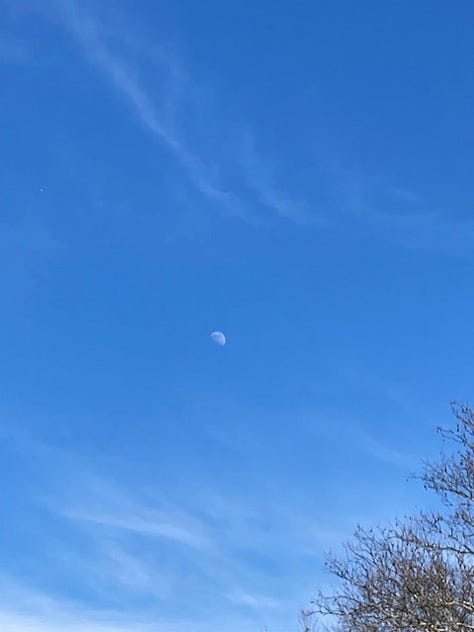
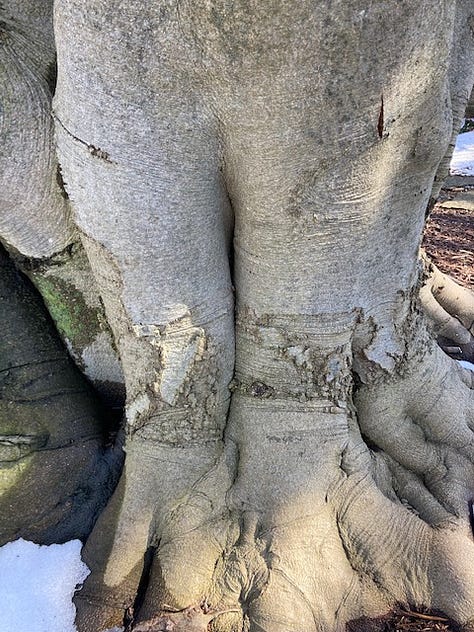
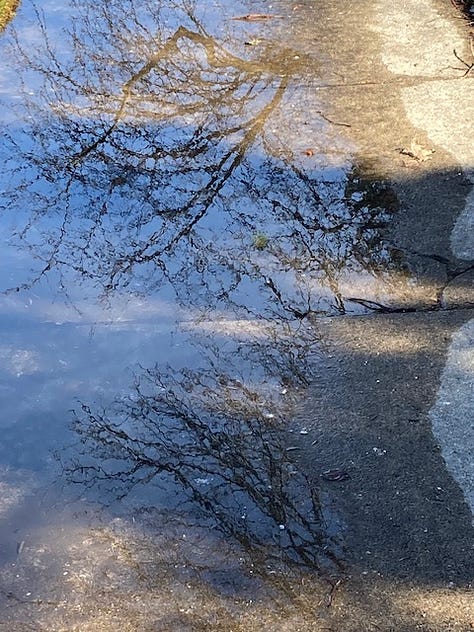
In the locker room at the gym recently a woman complained about the community center’s classes being closed in the aftermath of the MSU shooting. Talk about not reading the room. She was up there in years and, I guess, any disruption to her routine was cause for alarm/grief. But, wow. The woman she was talking to got increasingly annoyed by the complainer, and I myself had to rush out of the locker room before I started shouting, What is WRONG with you? People died, and you’re sad about water aerobics? The memory of her indignation still gets me. But also: we’ve all been there, haven’t we? Forgetting the bigger picture, thinking our woes are the real story? And they were, to that woman. It’s a both/and kind of thing.
I’m going to transition seamlessly into Annie Dillard now. Watch me! It’s from chapter six of Pilgrim at Tinker Creek, a chapter called The Present that starts with the words:
Catch it if you can.
It is early March. I am dazed from a long day of interstate driving homeward; I pull in at a gas station in Nowhere, Virginia, north of Lexington. The boy in charge (“Chick ‘at oll?”) is offering a free cup of coffee . . . All the time we talk, the boy’s new beagle puppy is skidding around the office . . . I step outside, followed by the puppy.
. . . My hands work automatically over the puppy’s fur, following the line of hair under his ears, down his neck, inside his forelegs, along his hot-skinned belly.
Shadows lope along the mountain’s rumpled flanks; they elongate like root tips, like lobes of spilling water, faster and faster . . . The air cools; the puppy’s skin is hot. I am more alive than all the world.
My college roommate read these words to me our senior year. I believe she was taking an American lit course and came home enthralled by this passage. Picture us, perched in our single beds on a sunny afternoon, our dinkily carpeted room, the small aisle between us housing a CD player programmed to play Prince when we woke. I recall her voice most all; she had a dramatic streak (don’t we all) and was especially good at reading things aloud.
This is it, I think, this is it, right now, the present, this empty gas station, here, this western wind, this tang of coffee on the tongue and I am patting the puppy.
. . . Catch it if you can. The present is an invisible electron; its lightning path traced faintly on a blackened screen is fleet, and fleeing, and gone.
These words all appear in the first three pages of that chapter. Dillard goes on to explore self-consciousness, i.e. what happened to that hot puppy skin under her hand after she verbalized her awareness of it, in her mind. The logic unfolds across several pages, which I will not burden you with, but it gets to another passage that sums up something I believe in fiercely, which is the inherent dignity of innocence:
Consciousness itself does not hinder living in the present. In fact, it is only to a heightened awareness that the great door to the present opens at all.
. . . Self-consciousness, however, does hinder the experience of the present. It is the one instrument that unplugs all the rest.
. . . Innocence is not the prerogative of infants and puppies, and far less of mountains and fixed stars, which have no prerogatives at all. It is not lost to us; the world is a better place than that. Like any other of the spirit’s good gifts, it is there if you want it, free for the asking, as has been stressed by stronger words than mine. It is possible to pursue innocence as hounds pursue hares: singlemindedly, driven by a kind of love, crashing over creeks, keening and lost in fields and forests, circling, vaulting over hedges and hills wide-eyed . . .
What I call innocence is the spirit’s unself-conscious state at any moment of pure devotion to any object. It is at once a receptiveness and total concentration. . . These are our few live seasons. Let us live them as purely as we can, in the present.
I bolded those words, obviously. I know it can be tedious to drop into someone else’s reading. Here’s a final reminder of that with which I’m trying to bonk us all over the head:
. . . it is there if you want it, free for the asking . . . These are our few live seasons. Let us live them as purely as we can, in the present.
Okay, that’s enough. I’m off to pursue cardboard art. The sick kid is drawing something we will make in 3D. I like to complain but the truth is, these kids are my puppies, anchoring me to the present. And you, my friends, are the mountains, helping me know where I stand.
XOXOXO




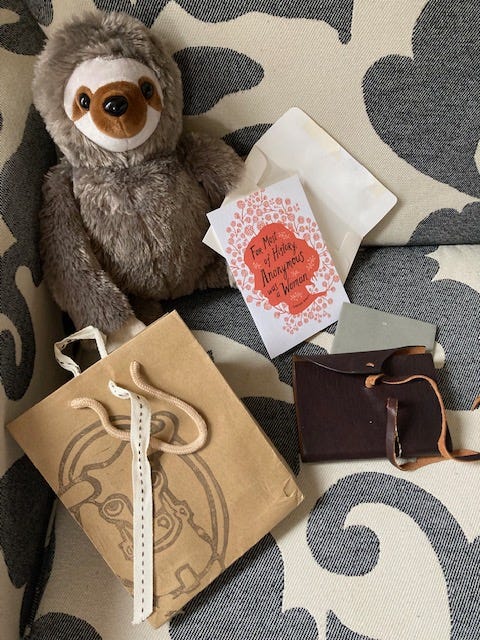

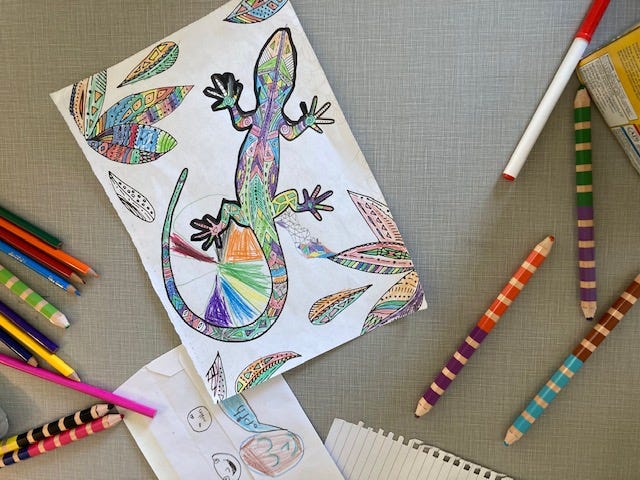

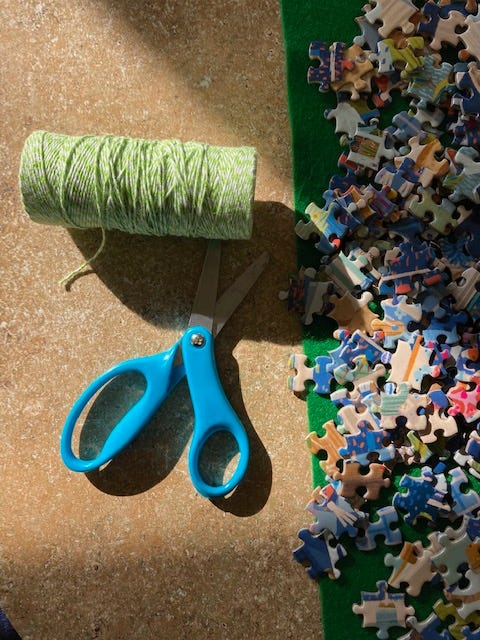
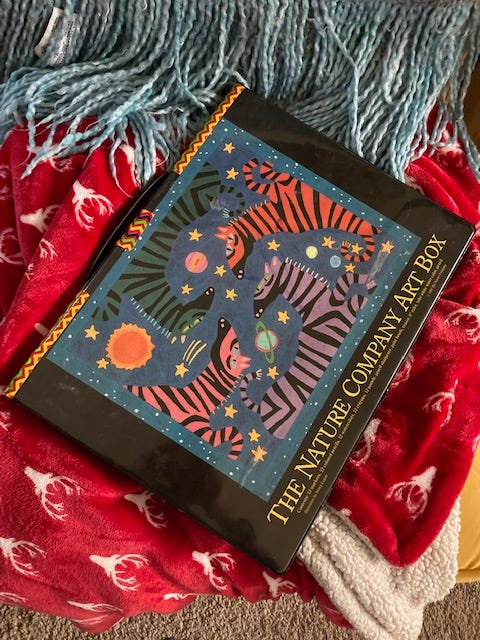
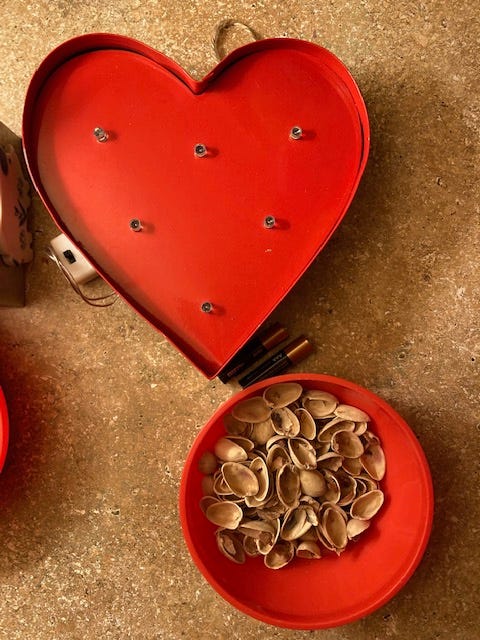
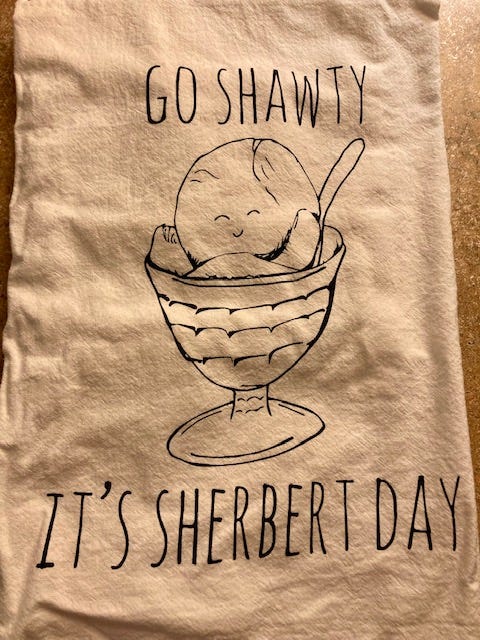
Always wanted to / meant to read that book. Love Annie Dillard and love hearing about what you're reading!!
I absolutely love those passages. Thank you for sharing